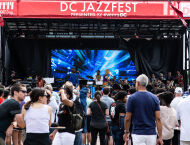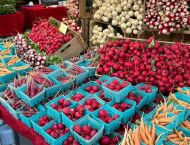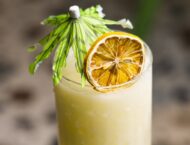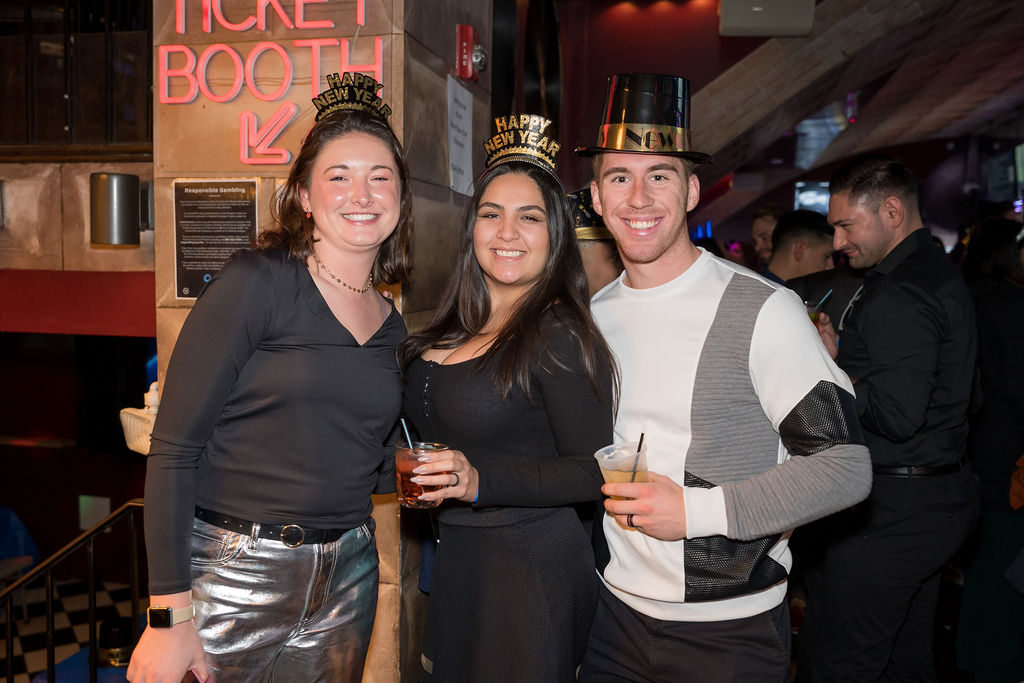Eat
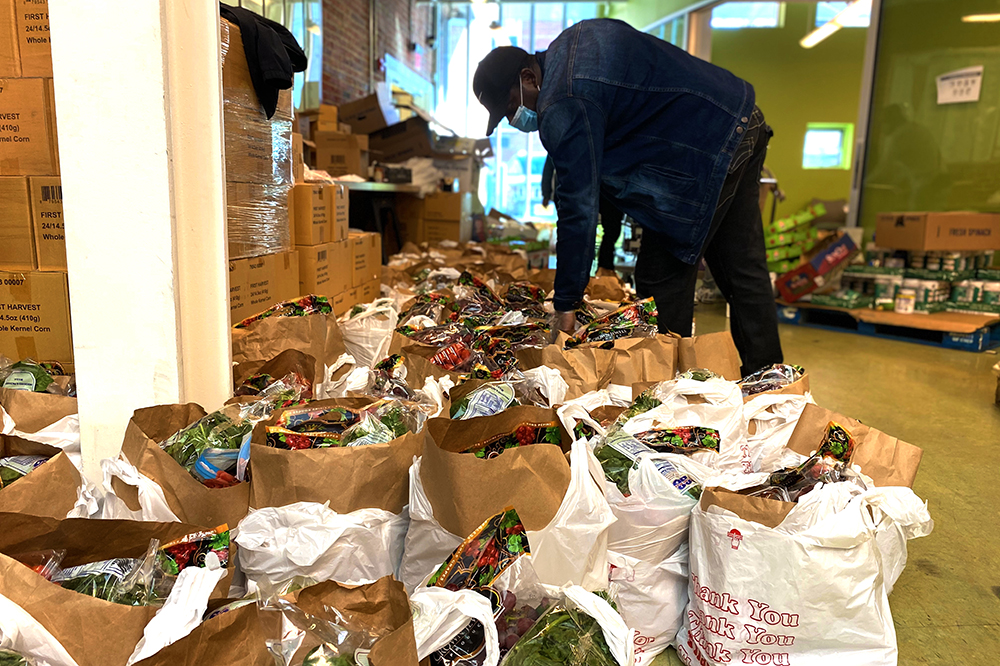 Photo courtesy of Bread in the City.
Photo courtesy of Bread in the City.
D.C. Battles Growing Food Insecurity
December 11, 2020 @ 1:00pm
In a time when resources are seemingly exhausted, problems that existed pre-Covid have become more apparent and visible. When a virus alters everyday life for an entire population, an already uphill battle can begin to feel like an impossible climb up a vertical wall while wearing slippers.
But this doesn’t mean you pack it up and go home. You cannot afford to do so, as people’s livelihoods and health and wellness are on the line. One glaring issue in the District is food disparity. With a wealth of organizations and the city’s own Food Policy Council (FPC) working hard to feed people in need during the time of social distancing, D.C. as a whole has continued its attempts to improve these conditions for its citizens.
“We’re very much focused on access, equity, security [and] jobs in the food sector, [now] more than ever,” says Ona Balkus, food policy director at the DC Office of Planning. “Our focus certainly shifted in the first few months [of the pandemic] toward emergency response. We’ve helped [with] emergency food programs and coordinated with a number of nonprofits that all really stepped up.”
The FPC is a coalition of food leaders and government representatives appointed by the mayor, according to its website. Since its 2014 inception, the council has set out to collect data, monitor regulation in the food economy, and promote food access and sustainability in the District.
Balkus says the beginning of 2020 was challenging for those in the city who already struggled with food insecurity, and those problems have only gotten more severe. According to a report from the mayor’s office from October, the food insecurity rate in D.C. has risen during 2020’s public health emergency from 10.6% to 16%.
The report notes higher rates among vulnerable populations such as the elderly, children, undocumented individuals and homeless people, and states that the national rate of food insecurity has jumped from 11.1% to 21.9%.
“We have to think long-term as we come up with emergency programs,” Balkus adds. “When the District sets up programs, we really think about how we can support local businesses. We thought about the racial inequities [and] the urban agriculture space, and how we can use structures we’ve created to help in both long-term change and for emergency responses.”
Organizations have also noticed an uptick in customer support. FRESHFARM, a nonprofit promoting sustainable agriculture, food access and equity in the DMV, saw its Pop-Up Food Hub ramp up its operation by 600%. This included the move from providing food packages for pickup at select locations to incorporating home delivery.
“Right off the bat, you’re dealing with a persistent lack of transportation as a factor in food insecurity,” says Sebastian Muenchrath, Pop-Up Food Hub’s operations manager. “Living in a food desert, you need to have transportation to get to where the food is.”
Before the pandemic, Muenchrath says people were able to pick up food at hubs throughout the region. Because of closures, social distancing and other safety measures taken by both their own employees and people throughout the city, FRESHFARM partnered with transportation services like Lyft to ensure people would receive items. The organization went from not offering deliveries in 2019 to doing about 900 per week, he says.
“We were lucky to have support from longtime funders,” he says. “With the increase in operations, it forced us to really retool how we’re using a big operation. We have the resources, access to food and ability to provide nutrient-dense local produce, and we didn’t want to wait for things to blow over.”
Sitting still isn’t an option for the farmers who rely on the payment for these goods, or the citizens in need for healthy choices. As 2020 comes to a close, FRESHFARM is considering how to use both pickup and delivery options going forward. With or without a pandemic, food insecurity is a problem that will persist, so the effort to combat it must remain unwavering.
“Food insecurity is going in the wrong direction at the moment, and that will inform the work we do over the next few years,” Muenchrath explains. “I think it’s intersectional. There’s so many factors that play into food security and insecurity.”
Another local organization on the frontlines is Bread for the City, which provides low-income residents with food, clothing, medical care and legal services to reduce the effects of poverty. Similar to FRESHFARM, efforts to deliver goods were developed because of the virus limiting their physical presence.
“At our food pantry, the largest in D.C., clients would normally come to our Northwest or Southeast center to get a bag of groceries,” says Kenrick Thomas, communications and events manager. “They can save money by staying home, and we can just bring [food] to them. In Ward 8, [the residents] don’t have access to food or a grocery store. We’re who they rely on. Being able to deliver has been a huge benefit to them.”
Thomas says that during the pandemic, Bread for the City has served as many as 1,000 families in a day. As the year has progressed, the need for food has only escalated.
“Services are needed more than ever,” he says. “Our services have more than tripled since the pandemic.”
Luckily, with an increase in need, Bread for the City has also received an increase in donations.
“We’ve seen it from the community, because they understand [now] more than ever,” Thomas says. “We’re in the middle of distributing our Holiday Helpings, and this year, what we’ve decided to do instead of giving them a turkey or ham with fixings is to give them $50 gift cards. We’re able to help in that way because of the increase in donations.”
Gift cards provide flexibility, and Thomas says there’s a possibility the organization distributes more than 20,000 throughout the month. Though figuring out how to get food to community members in need has represented an area of focus, sources of food have also changed.
The Food Recovery Network (FRN), which originated at the University of Maryland, is known for its student-led initiatives in gathering food for distribution to pantries and food banks that would have otherwise gone to waste from cafeterias and other eateries on college campuses. With colleges around the country either switching to online or cutting back on their in-person offerings, FRN and its participating chapters have had to shift to different options.
“Our students are on the frontlines everyday navigating different issues,” says Regina Anderson, FRN’s executive director. “When the pandemic hit, we were already pretty flexible. We were able to form a partnership with Farmlink Project to recover unharvested food for distribution.”
The Farmlink Project collaboration allows students to source the unsold produce and then transport it to places like food banks. Anderson says this has allowed the FRN to recover 600,000 pounds of food.
Despite organizations involved in helping with the food disparity issue in the DMV and across the country, Covid has only made an existing problem worse. Balkus says that as FPC looks forward and prepares future solutions, understanding the causation and scope of these problems is imperative to fixing them.
“We think about the racial inequalities,” Balkus says. “We found that Black residents are more likely to experience food insecurity than white residents. A lot of that is the result of the racial wealth gap, which we already deal with as a city. As a council, the members have prioritized learning more about racism in the food system and how to use our influence to drive toward a more equitable system.”
For more information on these organizations and how to support them, visit their respective websites and follow them on Instagram.
Bread for the City: www.breadforthecity.org; @breadforthecity
D.C. Food Policy Council: www.dcfoodpolicy.org; @dcfoodpolicy
The Food Recovery Network: www.foodrecoverynetwork.org; @foodrecovery
FRESHFARM: www.freshfarm.org; @freshfarmdc
Enjoy this piece? Consider becoming a member for access to our premium digital content. Support local journalism and start your membership today.



